▼ NHB Residex: Know More [07-31-17]
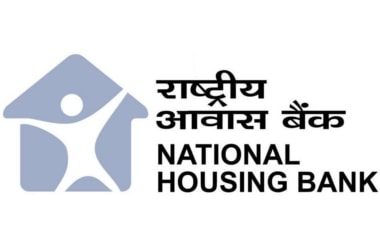 NHB Residex from the National Housing Bank, designed by a technical advisory committee comprising Government representatives, lenders and property market players, is a set of benchmarks that aims to track housing price indicators across Indian cities. NHB Residex from the National Housing Bank, designed by a technical advisory committee comprising Government representatives, lenders and property market players, is a set of benchmarks that aims to track housing price indicators across Indian cities.
Originally flagged off in July 2007, the index was discontinued in 2015 and was refurbished and re-introduced earlier this month.
It now sports enhanced city coverage (rising from 26 to 50, to be eventually raised to 100), a new base year (2012-13) and new data sources (with data from banks and home finance companies and market surveys).
The NHB Residex currently offers two sets of quarterly Housing Price Indices (HPIs) across the cities it tracks.
List prices of under-construction property, collated through a survey of developers, are captured in the‘ Market HPI’.
Data reported by banks and finance companies that extend home loans, is collated into the‘ Assessment HPI’.
While these two datasets have been released for 50 cities from 2013 to 2017, indices on resale homes, rental values, land prices and building materials are awaited
NHB
- Headquarters : New Delhi, India
- Founded : 9 July 1988
- Industry : Banking CEO: Sriram Kalyanaraman
- Products : Loans
|
▼ Axis Bank to acquire FreeCharge [07-28-17]
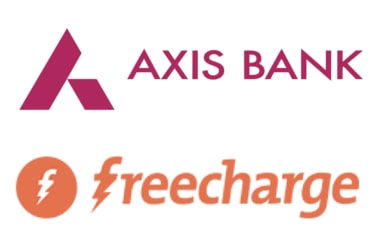 Private sector lender Axis Bank has decided to acquire digital wallet FreeCharge from e-commerce firm Snapdeal in an all cash deal worth ₹385 crore. Private sector lender Axis Bank has decided to acquire digital wallet FreeCharge from e-commerce firm Snapdeal in an all cash deal worth ₹385 crore.
Axis bank said in a statement that it has entered in an agreement with Jasper Infotech Private Limited (which owns and operate Snapdeal) to acquire 100% stake in its subsidiaries.
These include FreeCharge Payment Technologies Private Limited and Accelyst Solutions Private Limited, which together constitute the digital payments business under the FreeCharge brand.
Axis Bank has a 5% market share which means 95% are not their customers indicating the opportunity to scale up.The acquisition will need approval from the RBI.
According to RBI regulations, any bank can have only one license for a prepaid payments instrument (PPI) like FreeCharge.
Since Axis Bank already have an PPI license, the lender have to surrender one of the licenses. Axis Bank wants to retain the FreeCharge brand.
FreeCharge
- FreeCharge has over 50 million registered wallet users and over 2,00,000 merchants.
- FreeCharge wallet is used extensively to make payments for telecom, DTH and broadband recharges and for utility payments including electricity, gas and water bills.
- The wallet will incorporate Axis Bank products like digital savings bank account, instant loans, credit card application, buying insurance and mutual fund products, among others.
|
▼ SEBI launches online registration for INvITs, REITs [07-25-17]
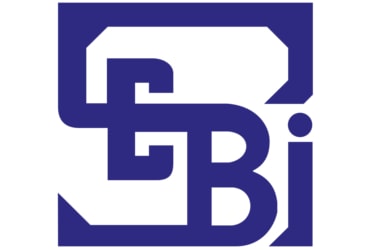 To make it easier to do business, markets regulator Sebi today said it has introduced an online registration system for REITs and InvITs. To make it easier to do business, markets regulator Sebi today said it has introduced an online registration system for REITs and InvITs.
The new system would help REITs (Real Estate Investment Trusts) and InvITs (Infrastructure Investment Trusts) to complete registration and other regulatory filings with Sebi much faster and in a cost—effective manner.
All applicants desirous of seeking registration as REITs or InvITs are now required to submit their applications online only, through Sebi intermediary portal.
The online system, which can be used for application for registration, reporting and filing under the provision of REITs and InvITs regulations, has been made operational, the regulator noted.
Also, the existing Sebi registered InvITs have been advised to activate their online accounts.
This is to facilitate applying for registration, reporting and various compliances under SEBI (Real Estate Investment Trusts) Regulations, 2014 and SEBI (Infrastructure Investment Trusts) Regulations, 2014.
The online system can be used for application for registration, reporting and filing under the provision of aforesaid Regulations.
All applicants desirous of seeking registration as REITs or InvITs are now required to submit their applications online only, through SEBI Intermediary Portal at https://siportal.sebi.gov.in.
Furthermore, all SEBI registered REITs and InvITs are now required to file/ submit/ apply for any request, as may be required under the provision of aforesaid Regulations & Circulars issued thereunder, through the online system only.
The aforesaid online filing system has been made operational.
Link for SEBI Intermediary Portal is also available on SEBI website – http://www.sebi.gov.in.
In case of any queries and clarifications, users may refer to the manual provided in the portal or contact the Portal Helpline as specified in the manual.
Existing SEBI registered InvITs have already been advised to activate their online accounts.
- The US is projected to grow at a clip of 2.1 percent in 2017 and 2018.
|
▼ SBI launches dedicated realty portal [07-19-17]
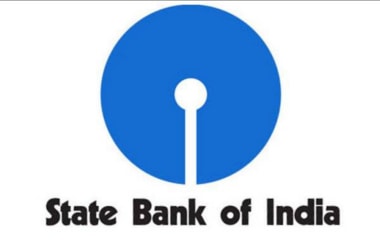 India’s largest commercial bank State Bank of India (SBI) on Tuesday said it has launched a dedicated portal ‘SBI Realty’. India’s largest commercial bank State Bank of India (SBI) on Tuesday said it has launched a dedicated portal ‘SBI Realty’.
This will help home buyers to choose flats from its 3,000 approved projects across the country, which are spread across 13 states and Union Territories covering 30 cities.
State Bank of India has taken another step towards customers’ convenience by launching ‘SBI Realty’ - a one stop integrated website www.sbirealty.in for home buyers.
At present, there are 9.5 lakh home units available on the website. Customers can compare current and past trends of prices for the properties in various localities in the city.
The portal will assist customers in calculating appropriate loan amount a customer should borrow based on income and credit profile.
SBI believes in innovation combined with an emphasis on market research, contemporary architecture, strong project execution and quality construction.
The SBI Realty website has been developed by SBICAP Securities in association with PropEquity in terms of data support, project information, etc.
SBI: Know More
- SBI is the largest commercial bank in India in terms of assets, deposits, profits, branches, customers and employees.
- The company has a deposit base of Rs 25.85 lakh crore.
- It has an extensive network, with over 24 thousand branches in India and 194 offices in 35 other countries.
|
▼ Deloitte India to merge with BMR Corporate Tax Practice unit [07-18-17]
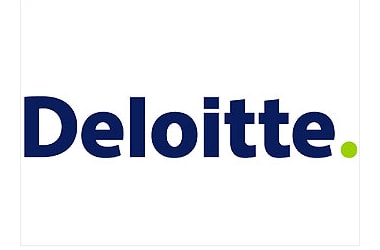 Deloitte India board has approved a deal for merger of BMR's corporate tax practice unit with itself. Deloitte India board has approved a deal for merger of BMR's corporate tax practice unit with itself.
Deloitte in an internal communication has indicated that it would merge BMR's corporate tax practice with itself.
BMR Advisors offers a host of tax, risk and M&A advisory services for domestic and global business of all sizes.
It was formed in October 2004 by Mukesh Butani and Bobby Parikh, along with Rajeev Dimri.
In April this year, a team of 38 lawyers of BMR Legal, a sister firm, had joined the M&A practice of Shardul Amarchand Mangaldas.
Deloitte is one of the world's leading consultancy firms.
|
▼ DGARM to tackle tax evaders [07-14-17]
 The Union Government has set up Directorate General of Analytics and Risk Management (DGARM), a new wing to provide intelligence inputs taking action against tax evaders. The Union Government has set up Directorate General of Analytics and Risk Management (DGARM), a new wing to provide intelligence inputs taking action against tax evaders.
It has been has been set up will be under the Central Board of Excise and Customs (CBEC). It will also do big data analytics for taxmen for better policy formulation.
The DGARM was set up on 1 July 2017, coinciding with rollout of Goods and Services Tax (GST).
It will function as an apex body of CBEC for data analytics and risk management and will report to the chairman of CBEC.
It will utilize internal and external data sources for detailed data mining and analysis to generate outputs for focused and targeted action by field formations and investigation wings of the CBEC.
The field formations of CBEC are also expected to gainfully and effectively utilise the data and other inputs shared by the DGARM.
The data analytics and processing coupled with intelligence inputs by DGRAM will provide the CBEC the national and sub-national perspective for policy formulation.
|
▼ Google acquires AI startup Halli Labs [07-13-17]
 Google has acquired Bengaluru-based artificial intelligence startup Halli Labs for an undisclosed sum. Google has acquired Bengaluru-based artificial intelligence startup Halli Labs for an undisclosed sum.
The firm said it was founded with the goal of applying modern artificial intelligence and machine learning techniques to solve old problems.
Halli Labs was co-founded early this year by Pankaj Gupta, former chief technology officer of online homestay aggregator Stayzilla, which recently closed down its services.
An alumnus of Stanford University, Mr.Gupta has also worked as a senior data scientist at Twitter.
Caesar Sengupta, Google's vice-president for product management tweeted about the acquisition on July 12 on his Twitter handle.
|
▼ Nepal SBI - First to launch paperless banking service SBIInTouch [07-12-17]
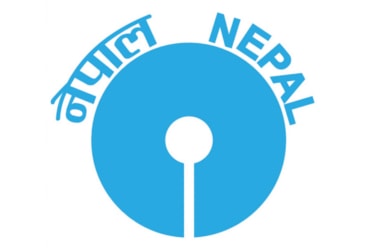 Nepal SBI Bank, a subsidiary of the State Bank of India, today launched its fully automatic digital banking services SBIInTouch in the Nepalese capital Kathmandu. Nepal SBI Bank, a subsidiary of the State Bank of India, today launched its fully automatic digital banking services SBIInTouch in the Nepalese capital Kathmandu.
This is for the first time the State Bank of India has expanded the paperless banking system outside India.
Digital banking provides various services including cash deposit, opening of new accounts, distribution of debit card, ATM and online banking information on touch of the screen.
Customers can avail the services from SBI Intouch Bank.
The digital banking unit also has a robot, which provides important information to customers in an interactive manner.
Nepal Rastra Bank Governor Chirinjibi Nepal, SBI Bank’s chairperson Arundhati Bhattacharya and Indian Ambassador to Nepal Manjeev Singh Puri, jointly inaugurated the new service, the first of its kind in Nepal.
The paperless banking service has been launched to target potential younger customers who are exposed to digital technology.
Paperless banking is a revolution in the banking sector of Nepal, said Chiranjibi Nepal.
|
▼ NHB Residex - First official housing price index revamped [07-11-17]
The revamped and expanded official online user friendly NHB RESIDEX that captures movements in the prices of residential real estate prices released revealed that prices during January-March, 2017 have increased over that of October-December, 2016.
This is in about half of the cities covered under the survey while the other half have either registered a decline or remained the same.
The new version of NHB RESIDEX was released on the occasion of the National Housing Bank entering its 30th year.
The price indices for the last quarter of last financial year i.e 2016-17 proved wrong the critics of demonetization who said that economy will take a hit.
He also said that the National Housing Bank also collected data on land prices which showed that a correction in land prices is taking place which again reflects the declining trend in transactions of unaccounted money.
NHB RESIDEX for January-March,2017 revealed that price indices for residential properties based on actual market prices for ongoing construction prices have increased over the previous quarter in 24 of the 47 cities covered in the Index.
This is including in Jaipur, Chennai, Lucknow, Guwahati, Howrah, Hyderabad, Bidhannagar etc.
In Delhi, Faridabad, Chandigarh, Patna and Nashik etc, prices have come down.
This component of RESIDEX, called Housing Price Index@Market Prices is based on actual market information.
The other component of RESIDEX called as HPI@Assessment Prices based on the information furnished by banks and other lending agencies showed that prices have increased in 27 of the 50 cities surveyed.
These include; Gurgaon, Mumbai, Vadodara, Raipur, Kanpur, Chandigarh, Bhubaneswar, Visakhapatnam and Coimbattore.
Prices, however, have declined in Ranchi, Gandhinagar, Surat, Ludhiana, Kolkata etc.
The RESIDEX has been computed for three categories of houses with carpet of below 60 sq.mtre, 61-110 sq.metre and 111 sq.metre and above.
RESIDEX: Know More - RESIDEX, the country’s first official housing price index (HPI) was launched in 2007 covering 26 cities.
- It was published till March, 2015 on a quarterly basis.
The revamped RESIDEX has been expanded to 50 cities spread over 18 States and UTs. - These include 38 smart cities, of which 18 are state capitals.
- Base year for the new RESIDEX has been moved from 2007 to 2012-13 to capture the changing structure of the economy.
- This is also for capturing the latest information to accurately reflect the current economic situation, as per the internationally accepted practices.
- CMD of National Housing Bank informed that RESIDEX will soon cover 100 cities and also will be further widened to include Land Price Indices, Building Materials Price Indices and Housing Rental Index.
- NHB RESIDEX helps buyers and sellers to check and compare prices before entering a transaction. They can also analyse the price trends across different cities both at composite level and product category level.
- It helps lenders in credit evaluation.
- It provides promoters with a standardized tool to assess the housing demand.
- Government agencies can monitor trends in macro and micro markets and predict future behaviour of the housing market.
|
▼ Chinese tech major Xiaomi acquired Nokia patents [07-7-17]
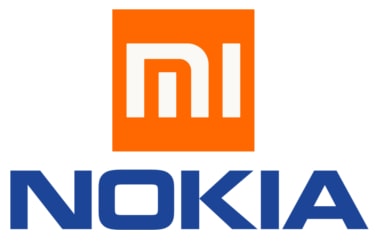 Chinese tech major Xiaomi on 5 July 2017 signed an agreement for business collaboration and patent licensing with Finnish mobile phone manufacturer Nokia. Chinese tech major Xiaomi on 5 July 2017 signed an agreement for business collaboration and patent licensing with Finnish mobile phone manufacturer Nokia.
As per the agreement, the company will acquire key patent assets from Nokia.
The multi-year patent agreement includes a cross license to each company’s cellular standard essential patents.
Under the agreement, Nokia will provide network infrastructure equipment designed to deliver high capacity, low power requirements for large web providers and data centre operators.
Nokia and Xiaomi will work together on optical transport solutions for data centre interconnect, IP routing based on Nokia’s newly announced ‘FP4’ network processor.
The companies will also explore opportunities for further cooperation in areas such as Internet of Things (IoT), augmented and virtual reality and Artificial Intelligence (AI). Xiaomi witnessed a rapid growth in the Indian market and clocked over USD 1 billion in revenue in 2016.
Beyond smartphones, Xiaomi is also a leading Internet of Things (IoT) player.
The Mi Ecosystem IoT platform has crossed 60 million connected devices, and there are now over eight million daily active connected devices on the Mi Ecosystem platform.
|
▼ India ranks ahead of France, Germany in financial compliance! [07-6-17]
 The Financial Stability Board (FSB), an international body for global financial system, has placed India in the league of countries that are ‘compliant or largely compliant’ on implementation of priority area reforms. The Financial Stability Board (FSB), an international body for global financial system, has placed India in the league of countries that are ‘compliant or largely compliant’ on implementation of priority area reforms.
Ahead of the G20 Summit in Germany to be attended by Prime Minister, Narendra Modi, among other world leaders, the FSB yesterday submitted its status report on progress in financial regulatory reforms in various jurisdictions, including India.
The report listed India as a ‘compliant’ jurisdiction with regard to Basel III reforms in risk-based capital and as ’largely compliant’ on liquidity coverage ratio.
Other countries that have been found to be ‘compliant or largely compliant’ on these metrics include Argentina, Australia, Brazil, Canada, China, Hong Kong, Indonesia, Japan, Mexico, South Korea, Russia, Singapore, South Africa, Switzerland, Turkey and the US.
At the same time, France, Germany, Italy, the Netherlands, Spain and the UK have been found to be ’materially non-compliant’ on at least one parameter.
With regard to the Net Stable Funding Ratio (NSFR), India figured among the countries where “final rule published but not in force, or draft regulation published“.
On compensation-related reforms, India is among the jurisdictions where “all except a few (three or less) FSB Principles and Standards implemented”, as per the FSB report.
On trade reporting in the over-the-counter derivatives market, India was among the countries where necessary regulatory framework was being implemented.
On shadow banking, the FSB report named India among the jurisdictions where the final implementation measures are in force for valuation, liquidity management and stable net asset for monetary market funds.
The final adoption measures were taken for implementing an incentive alignment regime and disclosing requirements on securitisation
|
▼ India's third biggest commodity exchange formed [07-4-17]
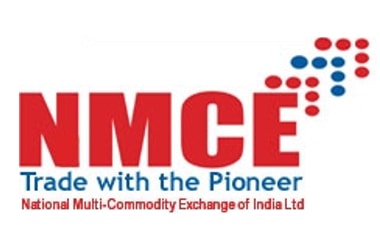 National Multi Commodity Exchange (NMCE), India’s first demutualised online national multi-commodities exchange will merge with Indian Commodity Exchange (ICEX). National Multi Commodity Exchange (NMCE), India’s first demutualised online national multi-commodities exchange will merge with Indian Commodity Exchange (ICEX).
The merged entity will create India’s third biggest commodity exchange.
The largest commodity exchange by volume is the Multi Commodity Exchange (MCX).
This is followed by National Commodity and Derivatives Exchange (NCDEX).
This is the first merger deal in the commodity exchange space in India.
It has been approved by the boards of both exchanges. It is expected to be completed by December 2017, subject to regulatory approvals.
In the merged entity, the ICEX will hold a 62.8% stake, while NMCE shareholders will own the rest.
The new exchange will offer a wide range of contracts, including bullion, oil, rubber, and other agri-commodities.
It will also offer the world’s first diamond futures contract. This has already received in-principle approval from the marker regulator SEBI.
The merger will help ICEX to further strengthen its position in the country’s fast-growing commodity derivatives market.
It will result in greater financial strength, the consolidation of clients and members, an enhanced product basket, and higher operational synergies.
Commodity trading in India: Know More
- Commodity trading is an exchange where various commodities and derivatives products are traded. Most commodity markets trade in agricultural products.
- They also trade in other raw materials and contracts based on them.
- These contracts can include spot prices, futures, forwards and options on futures.
- Other products may include interest rates, environmental instruments, swaps, or ocean freight contracts. Commodity trading had started in India much before it started in many other countries.
- However, years of foreign rule and Government policies had caused the commodity trading in India to diminish. It was restarted recently.
Indian Commodity Exchanges: Know Morem- At present, India has six national commodity exchanges namely, Multi Commodity Exchange (MCX), National Commodity and Derivatives Exchange (NCDEX), National Multi-Commodity Exchange (NMCE) and Indian Commodity Exchange (ICEX).
- ACE Derivatives exchange (ACE) and Universal commodity exchange (UCX) are there apart from numerous regional exchanges.
- Government had established regulatory body is Forward Markets Commission (FMC) in 1953.
- It was merged with the Securities and Exchange Board of India (SEBI) in September 2015
|
▼ GVA Growth at 7.3% in 2017-2018: RBI [07-4-17]
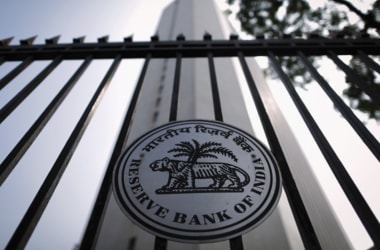 The Reserve Bank of India (RBI) on June 30th 2017 reported ongoing accelerated reform initiatives like goods and services (GST) and continuing political stability will push the economic growth scale. The Reserve Bank of India (RBI) on June 30th 2017 reported ongoing accelerated reform initiatives like goods and services (GST) and continuing political stability will push the economic growth scale.
It will reach 7.3% in terms of gross value added (GVA) in the current fiscal year.
The Financial Stability Report 2017 by RBI bases its optimism to the lower fiscal deficit at 3.2% for this year down from 3.5% in 2016-17.
Other factors are increasing public capex and support to poorer households, small businesses and the rural sector, to oil the economy.
Going forward, reforms in FDI and real estate sector, implementation of GST, and revival in external demand are likely to contribute to a better economic growth outlook.
GVA growth is expected to be higher at 7.3% in 2017-18 as per FSR.
On inflation, CPI inflation is to be in the range of 2-3.5% in the first half of the year and 3.5-4.5% in the second half.
Retail inflation, excluding food and fuel that remained sticky during H2 of FY17 at around 4.9%, dipped to 4.3% in April and 4.2% in May 2017.
This is largely reflecting the impact of decline in global crude oil prices on transport and communication and moderate price pressures in services.
While noting that the fiscal conditions of the Centre is on the mend, it expressed concerns on that of the states.
One is the deterioration in the states’ fiscal conditions and the other is increased leverage of public sector undertakings.
In absolute and relative terms, the size of net market borrowings of the states has been rising sharply, though their market liquidity has not improved commensurately.
This has implications for the further development of secondary market in government bonds, besides periodic redemption pressures.
|